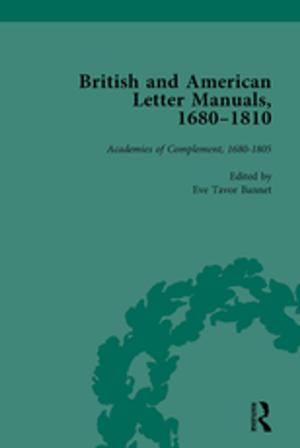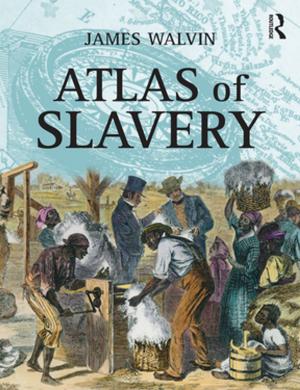Women's Wealth and Women's Writing in Early Modern England
'Little Legacies' and the Materials of Motherhood
Fiction & Literature, Literary Theory & Criticism| Author: | Elizabeth Mazzola | ISBN: | 9781351871150 |
| Publisher: | Taylor and Francis | Publication: | December 5, 2016 |
| Imprint: | Routledge | Language: | English |
| Author: | Elizabeth Mazzola |
| ISBN: | 9781351871150 |
| Publisher: | Taylor and Francis |
| Publication: | December 5, 2016 |
| Imprint: | Routledge |
| Language: | English |
Focusing on both literary and material networks in early modern England, this book examines the nature of women's wealth, its peculiar laws of transmission and accumulation, and how a world of goods and favors, mothers and daughters was transformed by market culture. Drawing on the long and troubled relationship between Elizabeth Tudor, Mary Stuart, Bess of Hardwick, and Arbella Stuart, Elizabeth Mazzola more broadly explores what early modern women might exchange with or leave to each other, including jewels and cloth, needlework, combs, and candlesticks. Women's writings take their place in this circulation of material things, and Mazzola argues that their poems and prayers, letters and wills are particularly designed with the aim of substantiating female ties. This book is an interdisciplinary one, making use of archival research, literary criticism, social history, feminist theory, and anthropological studies of gift exchange to propose that early modern women - whatever their class, educational background or marital status - were key economic players, actively pursuing favors, trading services, and exchanging goods.
Focusing on both literary and material networks in early modern England, this book examines the nature of women's wealth, its peculiar laws of transmission and accumulation, and how a world of goods and favors, mothers and daughters was transformed by market culture. Drawing on the long and troubled relationship between Elizabeth Tudor, Mary Stuart, Bess of Hardwick, and Arbella Stuart, Elizabeth Mazzola more broadly explores what early modern women might exchange with or leave to each other, including jewels and cloth, needlework, combs, and candlesticks. Women's writings take their place in this circulation of material things, and Mazzola argues that their poems and prayers, letters and wills are particularly designed with the aim of substantiating female ties. This book is an interdisciplinary one, making use of archival research, literary criticism, social history, feminist theory, and anthropological studies of gift exchange to propose that early modern women - whatever their class, educational background or marital status - were key economic players, actively pursuing favors, trading services, and exchanging goods.















